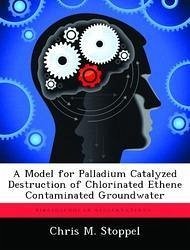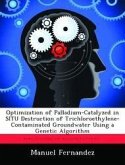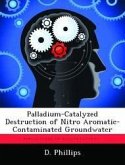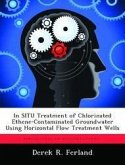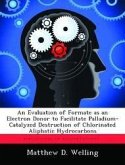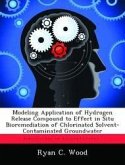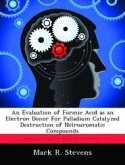Groundwater contamination by chlorinated ethenes is a widespread environmental problem. Conventional remediation technologies have shortcomings that have prompted further research into the development of novel treatment technologies. A palladium/ alumina catalyst in the presence of dissolved molecular hydrogen (referred to hereafter as a Pd/H2 system) has been demonstrated to rapidly destroy chlorinated ethene contaminated groundwater. First-order kinetics have been used to model chlorinated ethene destruction in a Pd/H2 reactor. However, catalyst deactivation and regeneration are important processes that also need to be modeled in order to better understand their effect on treatment efficiency. This study presents a model for palladium catalyzed destruction of chlorinated ethenes that includes catalyst deactivation and regeneration. The model is validated using experimental column results (Lowry and Reinhard, 2000a). The model is then coupled with an analytical groundwater flow model to simulate application of in-well Pd/H2 reactors to treat chlorinated ethene contaminated groundwater in a recirculating Horizontal Flow Treatment Well (HFTW) system. Applying the model under realistic conditions results in approximately 130 days of HFTW system operation without significant catalyst deactivation. This suggests catalyst deactivation will not significantly affect operating costs or system performance in a real remediation scenario. The model presented in this study, by incorporating the relevant processes of catalyst deactivation and regeneration, represents an important step in transitioning the Pd/H2 in-well system toward field application.
Hinweis: Dieser Artikel kann nur an eine deutsche Lieferadresse ausgeliefert werden.
Hinweis: Dieser Artikel kann nur an eine deutsche Lieferadresse ausgeliefert werden.

